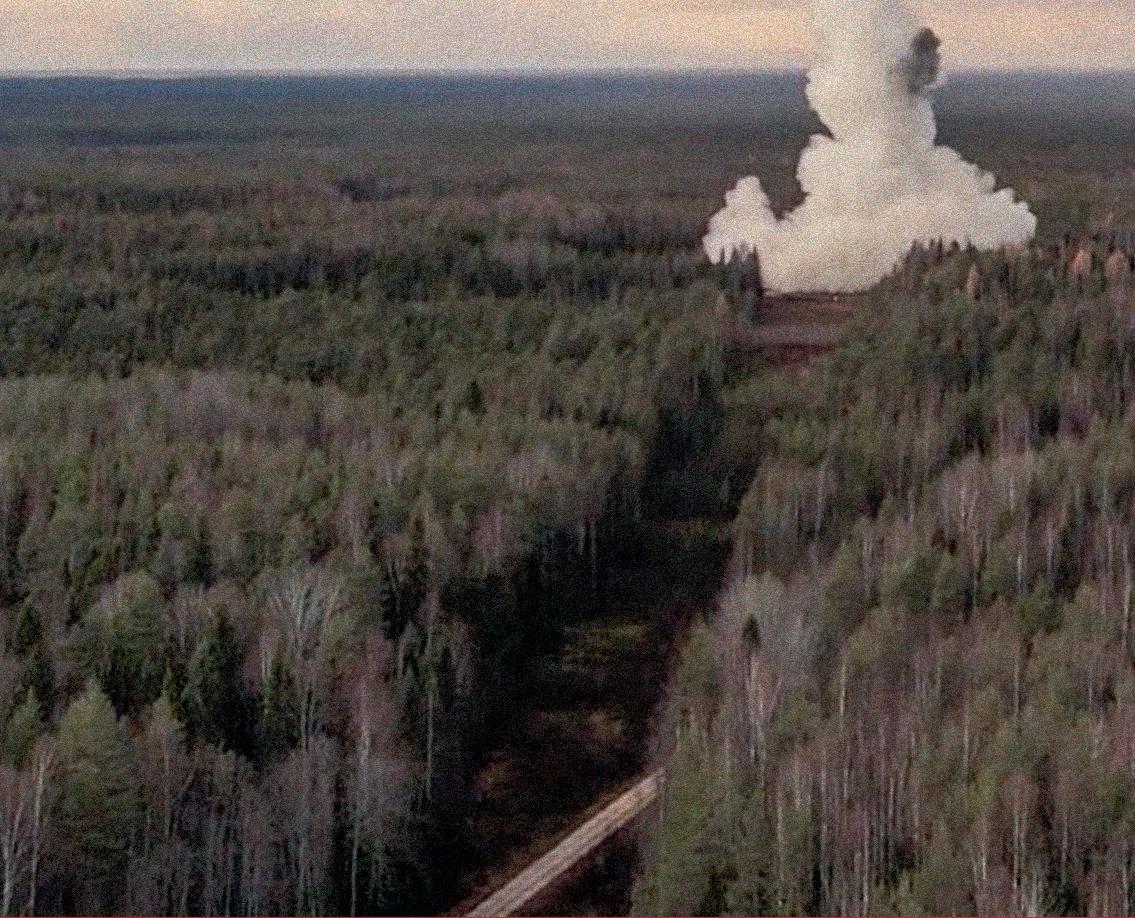Versuchen GOLD - Frei
Behind enemy lines
The Guardian Weekly
|November 29, 2024
Tensions rose as long-range missiles flew from and into Russia last week. But in truth, the west has been under attack from hybrid warfare since the Ukraine invasion began

THE UNPRECEDENTED FIRING by Ukrainian forces of British-made long-range Storm Shadow missiles at military targets inside Russia last week means the UK, along with the US, is now viewed by Moscow as a legitimate target for punitive, possibly violent retaliation.
In a significant escalation in response to the missile launches, Vladimir Putin confirmed that, for the first time in the war, Russia had fired an intermediate-range ballistic missile, targeting the Ukrainian city of Dnipro. Putin also said Russia now believed it had the "right" to attack "military facilities" in countries that supply Kyiv with long-range weapons.
Yet in truth, Britain and its allies have been under constant Russian attack since the war began. Using sabotage, arson, deniable cyber-attacks and aggressive and passive forms of covert "hybrid" and "cognitive" warfare, Putin has tried to impose a high cost for western support of Ukraine.
This largely silent struggle does not yet amount to a conventional military conflict between Nato and its former Soviet adversary. But in an echo of Cuba in 1962, the "Ukraine missile crisis" - fought on land, air and in the dark-web alleyways and byways of a digitised world-points ominously in that direction.
Concern that Russia's 2022 invasion of Ukraine would trigger a wider war has preoccupied western politicians and military planners from the start. The US, UK and EU armed and bankrolled Kyiv and placed unprecedented, punitive sanctions on Moscow.
But the US president, Joe Biden, remained cautious. His primary aim was to contain the conflict. So the convenient fiction developed that the west was not fighting Russia but, rather, helping a sovereign Ukraine defend itself. That illusion was never shared by Moscow.
Diese Geschichte stammt aus der November 29, 2024-Ausgabe von The Guardian Weekly.
Abonnieren Sie Magzter GOLD, um auf Tausende kuratierter Premium-Geschichten und über 9.000 Zeitschriften und Zeitungen zuzugreifen.
Sie sind bereits Abonnent? Anmelden
WEITERE GESCHICHTEN VON The Guardian Weekly
The Guardian Weekly
My boyfriend's use of AI stops him thinking for himself
My boyfriend of eight years, who is 44, has ADHD and runs his own business.
2 mins
February 27, 2026

The Guardian Weekly
'Our land lets us all breathe clean oxygen'
The Congo River basin is home to a biodiverse ecosystem-and a relentless trade in timber and charcoal
3 mins
February 27, 2026

The Guardian Weekly
Nations apart: Andrew's UK arrest highlights US passivity on Epstein files
It is a tale of two nations.
2 mins
February 27, 2026

The Guardian Weekly
Under water: Engulfed by storms, but climate denial grows
In the week between Christmas and the New Year, two Spanish men in their early 50s - friends since childhood - went to a restaurant and did not come home.
3 mins
February 27, 2026

The Guardian Weekly
The crown in court
A brief history of royal run-ins with the law
3 mins
February 27, 2026

The Guardian Weekly
Big in Beijing
James Balmont's band, Swim Deep, plays to crowds of hundreds across the UK - but in China, they play to tens of thousands. And they're not the only ones
3 mins
February 27, 2026
The Guardian Weekly
Trump's Board of Peace is serving private interests more than public good
In Gaza, aid still trickles in at levels relief agencies say are far below what is required.
2 mins
February 27, 2026

The Guardian Weekly
Needle drops Weight-loss pills are here - and big pharma stands to gain
Oral tablets could bring obesity treatment into the mainstream, with the sector predicted to be worth $200bn by the end of the decade
6 mins
February 27, 2026

The Guardian Weekly
How Italians gradually warmed to their Winter Olympics
With the atmosphere in Rome subdued as the Winter Olympics unfolded across northern Italy, travelling to the Games was not on Amity Neumeister's radar.
3 mins
February 27, 2026

The Guardian Weekly
Fire and fury
Violence erupts as security forces kill feared cartel boss.
1 min
February 27, 2026
Listen
Translate
Change font size

